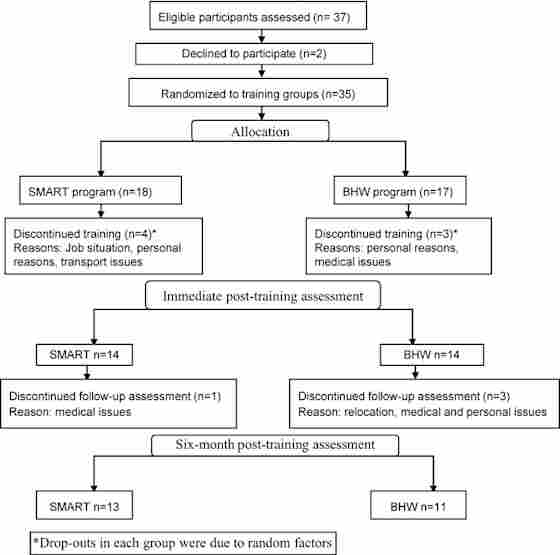
Figure 1. CONSORT flow diagram showing the pathway of this study for 2 group: BHW and SMART. BHW indicates Brain Health Workshop; SMART, Strategic Memory and Reasoning Training.

Journal of Head Trauma Rehabilitation
Asha K. Vas, Sandra Bond Chapman, Lori G. Cook, Alan Elliott and Molly Keebler

Figure 1. CONSORT flow diagram showing the pathway of this study for 2 group: BHW and SMART. BHW indicates Brain Health Workshop; SMART, Strategic Memory and Reasoning Training.
Share this article
Sandra Bond Chapman, PhD
Chief Director Dee Wyly Distinguished Professor, School of Behavioral and Brain Sciences Co-Leader, The BrainHealth Project

This randomized controlled trial (RCT) shows how months or even years after traumatic brain injury, SMART™ has the potential to help adolescents improve certain cognitive impairments once thought to be long-lasting.

This study presents preliminary evidence on the efficacy of SMART™ protocols administered to military, veteran and law enforcement populations over a condensed time frame.

SMART™ training has demonstrated an ability to improve cognitive function and psychological well-being. These results can even make long-lasting improvements to brain health outside of training, in everyday life.